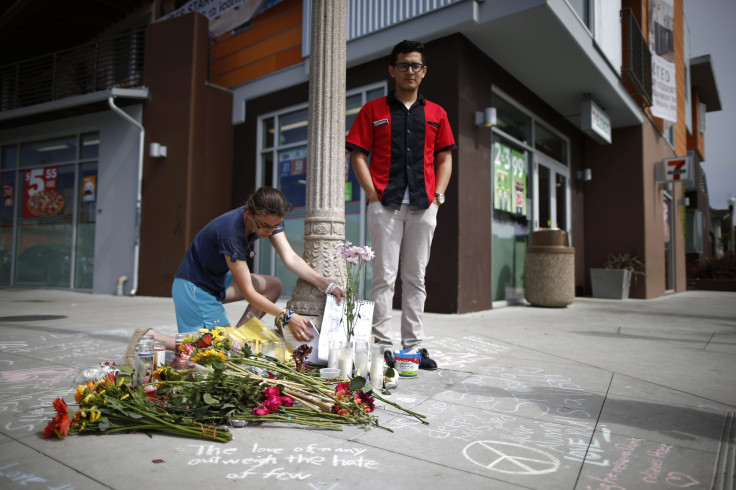New California Bill To Bar Mentally Unstable From Purchasing Firearms; Lawmakers Argue Gun Laws Should Be Strengthened

Days after the mass shooting near a campus in Santa Barbara, Calif., state lawmakers have created a proposal that would push a “gun violence restraining order” to temporarily prevent mentally unstable people from buying or possessing firearms.
The bill is spearheaded by State Assemblyman Das Williams, a Democrat from Santa Barbara, who says that the law is meant to curb mass killings similar to the one that occurred last week in Isla Vista, leaving seven people dead. “If I was in Congress, I would be much more daunted about getting this passed,” Williams told CNN. “I think here in California, people have determined that enough is enough. We’re sick and tired of people dying in mass killings.”
If the law is passed, it would allow family members or friends of mentally unstable individuals to call the police to intervene, if there warning signs of potential violence. Police officers would be able to ask a judge to issue an order that would prevent the individual from buying or possessing guns. “It is not intrusive if the judge still has discretion over the matter at the end of the day,” Williams said. “And we believe that in this case — I’m not omniscient, I can’t tell you for sure that the tragedy would have been avoided — but what’s unique about this case is that the mother and father knew there was going to be a problem, and at this point, in current law, there’s no way for them to do something about it.”
After writing a 141-paged manifesto describing a tormented life of loneliness and rejection, as well as a deep-rooted hatred for females — particularly pretty blonde sorority girls — Elliott Rodger, the 22-year-old behind the violence, murdered three people in his apartment before shooting two women near campus and a man inside a deli. Despite the fact that Rodger had consistently posted deranged and concerning YouTube videos in which he sneeringly spoke of his desire to enact revenge on women, police officers and mental health experts who knew him did nothing to prevent any potential violence.
Rodger had received psychiatric care in the past and had been placed on medications, but he wrote about the futility of his therapy sessions: "My Psychiatrist ... Dr. Sophy ended up giving me the same useless advice that every other psychiatrist, psychologist, and counsellor had given me in the past. I don't know why my parents wasted money on therapy, as it will never help me in my struggle against such a cruel and unjust world."
Currently, there is no system in place that could stop a mentally unstable person from purchasing guns. “There’s no mechanism for the police or for the public or for a mental health professional to basically say, ‘we need to take a look at this individual,’ just like we might yank somebody’s driver’s license for acting recklessly,” Mel Robbins, CNN’s legal analyst, said.
As typically occurs in the aftermath of a mass murder, the media indulges in a conversation about the intersections of gun regulations and mental health. And while Rodger’s case was, like all the others, a complicated one defined by personal, psychiatric, and societal factors — it may be important for lawmakers to begin finding a solution that addresses both guns and mental health.
“Things must change,” Frida Ghitis writes on CNN. “The threshold for taking someone against their will for psychiatric evaluation needs to be lowered. Police need better mental health training. It must become easier to intervene when there are risks. Importantly, people who have mental illnesses that put them at risk of violence should be blocked from owning weapons.”
Richard Martinez, the father of one of the victims of the Isla Vista massacre, has become a voice for parents and other anti-gun activists, vowing to fight for tighter regulations on firearms. According to the NY Daily News, Martinez received a letter from Mark Barden, the father of one of the children killed at Sandy Hook. Barden wrote: "You will find your own path down this difficult road. But know that we are here for you and all of you who have been touched by this tragedy. Together we can and will build a safer world for all our children."



























